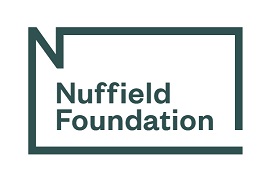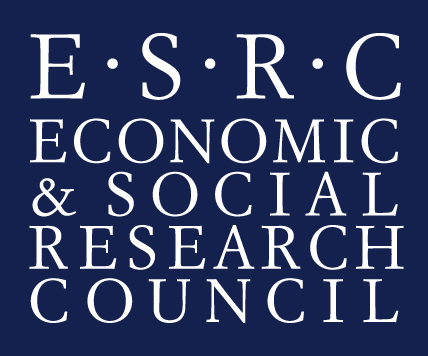Understanding and improving data linkage consent in surveys
The research project funded by Nuffield and the ESRC (2018-2020) has come to an end, but we continue to investigate how we can improve consent to data linkage, especially in web surveys. The current research is funded by ESRC grants for Understanding Society.
Outputs
We have published a public report that summarizes the findings from the Nuffield/ESRC funded research project:
- Jäckle, Burton, Couper, Crossley and Walzenbach (2021) “Understanding and improving data linkage consent in surveys”, Understanding Society Working Paper 2021-01. Colchester: University of Essex
Listen to a podcast featuring results from this project. In this podcast, recorded for the European Survey Research Association conference 2021, Annette Jäckle (University of Essex), Emanuela Sala (University of Milano-Bicocca) and Florian Keusch (University of Mannheim) talk about asking respondents to do more than answer survey questions. We discuss what we have learnt in recent years about asking respondents for consent to data linkage, asking for other types of data such as images, and asking respondents to use mobile apps and sensors to collect data. Listen to the podcast here.
We have written articles on how respondents make the decision whether to consent, the effects of different ways of wording consent questions, the effects of data collection mode on consent, and how to ask for multiple consents within one interview:
- Burton, Couper and Jäckle (2024) “The effects of placement and order on consent to data linkage in a web survey’, Journal of Survey Statistics and Methodology. https://doi.org/10.1093/jssam/smae004.
- Jäckle, Burton, Couper, Crossley and Walzenbach (2023) “Survey consent to administrative data linkage: Five experiments on wording and format”, Journal of Survey Statistics and Methodology, https://doi.org/10.1093/jssam/smad019.
- Jäckle, Burton, Couper, Crossley and Walzenbach (2022) “How and why does the mode of data collection affect consent to data linkage?”, Survey Research Methods, 16(3):387–408. https://doi.org/10.18148/srm/2022.v16i3.7933.
- Walzenbach, Burton, Couper, Crossley and Jäckle (2022) “Experiments on multiple requests for consent to data linkage in surveys”, Journal of Survey Statistics and Methodology, 11(3): 518-540, https://doi.org/10.1093/jssam/smab053.
- Burton, Couper, Crossley, Jäckle and Walzenbach (2021) “How do survey respondents decide whether to consent to data linkage?”, Understanding Society Working Paper 2021-05. Colchester: University of Essex.
We have expanded and written up the initial analyses that motivated this project: on how (in)consistent people’s consent decisions are between domains and over time, how the mode of data collection affects consent, and insights on these findings from the qualitative interviews.
- Jäckle, Beninger, Burton, and Couper (2021) “Understanding data linkage consent in longitudinal surveys”, Ch. 6 in P. Lynn (ed.), Advances in Longitudinal Survey Methodology. New York: Wiley. https://doi.org/10.1002/9781119376965.ch6
This research programme builds on findings from in-depth interviews that explored how people decide whether or not to give consent to link government administrative data to their responses in the Understanding Society survey:
- Beninger, Digby, Dillon, and MacGregor “Understanding Society: how people decide whether to give consent to link their administrative and survey data” Understanding Society Working Paper 2017-13. Colchester: University of Essex.
Data and documentation
We have collected experimental data for this project in wave 11 of the Understanding Society Innovation Panel and in the PopulusLive online access panel.
Innovation Panel:
- The questionnaire is available here.
- The data are available to researchers from the UK Data Service (SN 6849).
PopulusLive panel:
Additional materials used to explain data linkage to respondents:
Background
One of the most promising avenues for empirical social science research involves linking administrative or process generated data with survey data. Administrative data (whether held by government or private entities) are useful on their own, but will be much more useful if we can use surveys to “fill the gaps”. Sometimes the gaps will be specific types of information (e.g. administrative data do not contain information on expectations or subjective wellbeing), and sometimes it will be to provide a suitable frame to allow inference to the general population (especially in the UK where there is not an appropriate individual identifier, or register, to provide a frame).
In the UK, survey data can only be linked to administrative or other process generated data if survey respondents give informed consent to the linkage. Previous research suggests that people do not have strong fixed views on consent and that the decision to consent can be influenced.
Project aims
The overall aim of this project is to maximise truly informed consent to data linkage. The specific aims are to:
- Understand how respondents process requests for data linkage: which factors influence their understanding of data linkage, which factors influence their decision to consent, and why respondents change their mind about consent.
- Develop and test methods of maximising consent in web surveys, by understanding why web respondents are less likely to give consent than face-to-face respondents.
- Develop and test methods of maximising consent with requests for linkage to multiple data sets, by understanding how respondents process multiple requests.
Methods
We will design survey question experiments to test whether different features of the consent request are effective for different types of people, to measure the respondent decision-making process, to ascertain how informed the consent decision is, whether and how informed consent varies with the experimental treatments and respondent characteristics, and how it differs between face-to-face interviews and self-completion web surveys.
The Nuffield Foundation is an independent charitable trust with a mission to advance social well-being. It funds research that informs social policy, primarily in Education, Welfare, and Justice. It also funds student programmes that provide opportunities for young people to develop skills in quantitative and qualitative methods. The Nuffield Foundation is the founder and co-funder of the Nuffield Council on Bioethics and the Ada Lovelace Institute. The Foundation has funded this project, but the views expressed are those of the authors and not necessarily the Foundation. Visit www.nuffieldfoundation.org
Team members
Dr Jonathan Burton
Associate Director, Surveys - ISER, University of Essex
Professor Annette Jäckle (Principal Investigator)
Professor of Survey Methodology - ISER, University of Essex
Professor Mick Couper
Research Professor - Survey Research Centre, University of Michigan
Mr Brendan Read
PhD student in Survey Methodology - ISER, University of Essex
Ms Sina Chen
Placement student - ISER, University of Essex
Ms Sandra Walzenbach
Senior Research Officer - ISER, University of Essex
Professor Thomas Crossley
Professor of Economics - European University Institute and University of Essex
ADVISORY BOARD MEMBERS
Natalie Banner
Wellcome Trust
Nancy Bates
US Census Bureau
Andrew Boyd
University of Bristol
Lisa Calderwood
Centre for Longitudinal Studies, UCL Institute of Education
Mike Daly
Department for Work and Pensions
Ben Edwards
Australian National University
Zoe Oldfield
Institute for Fiscal Studies
Andrew Phelps
Office for National Statistics
Anya Skatova
University of Bristol


